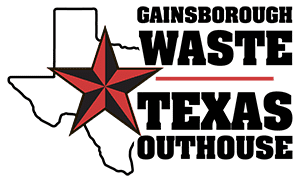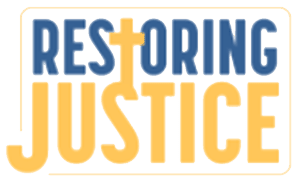Hemp. Cannabis. Edibles. CBD oil. There’s a new frontier in American society, one that remains uncharted territory for millions of people in this country. The frontier we’re referring to is the world of cannabis, otherwise called marijuana, and more specifically how it fits into workplace culture in America. Human resources professionals are the pioneers of this changing drug frontier for employers by steadily navigating the laws, advising business leaders, and crafting risk mitigation policies.
History
Though marijuana has been in the United States since the 19th century, it was essentially made illegal by Franklin D. Roosevelt in 1937 through the passage of the Marihuana Tax Act. Though this Act would eventually be overturned by the Supreme Court in 1969, Congress would simultaneously pass The Controlled Substances Act in 1970. Thereby, marijuana would keep its classification as an illegal drug.
More recently, state laws regarding marijuana usage have changed, with some states allowing the use of the drug for medicinal purposes only. Others have made it legal to use marijuana for both medicinal and recreational usage. As of this writing, the use of marijuana in any form remains fully illegal in 11 states. The remaining 39 states and the District of Columbia allow the use of marijuana to some degree, whether for recreational and/or medicinal purposes. Federal law, however, still classifies marijuana as an illegal Schedule 1 drug under the Controlled Substances Act, though efforts to push towards legalization remain strong.
In fact, as an industry, marijuana is growing, meaning the issues surrounding marijuana and employer versus employee rights aren’t going away. According to Fortune, the legal marijuana industry in the United States grew to $10.4 billion in 2018, and employs more than 250,000 people.
To add further confusion, the federal government has remained lackadaisical when it comes to prosecuting people who possess and distribute marijuana while in compliance with state laws, making the drug both legal and illegal at the same time. This lack of cohesion between state and national governments has created a lot of confusion for both employers and employees as to what their rights are concerning marijuana usage and the workplace. Many employers have been left questioning how to handle the usage of the drug by their employees.
Should employers continue to drug test employees? Can they do so legally? Should marijuana usage be permitted by employees as long as it doesn’t impact job performance? What about safety issues? Unfortunately for employers, the answers to these questions and others aren’t clear cut. So, what’s an employer to do when it comes to preparing marijuana policy in the workplace? As leading human resources professionals, we will walk you through what we currently know about employer and employee rights pertaining to marijuana usage and the workplace, as well as recommend some best practices on how to handle pertinent situations that arise. Read on for our recommendations on handling marijuana in the workplace.
Guidelines for Handling Marijuana as an Employer
Is Marijuana Legal in Texas?
In Texas, recreational and most medical marijuana usage remains illegal, although several bills were introduced ahead of the 2019 Texas legislative session in an effort to loosen marijuana laws. Texas governor, Greg Abbott recently signed a bill expanding the Compassionate Use Program to serve patients who suffer from terminal cancer, autism, multiple sclerosis, amyotrophic lateral sclerosis (ALS), seizure disorders and incurable neurological disorders such as Alzheimer’s, Parkinson’s and Huntington’s Disease. The changes go into effect September 1 of this year. Achilles Group will continue to be a resource for the latest legalities.
How Does this Impact Drug Testing?
While drug testing laws vary by state, under Texas and federal laws, there is almost no limitation at all on the right of private employers to adopt drug and alcohol testing policies for their workers. Because THC (tetrahydrocannabinol) in marijuana can affect an individual’s depth perception, reaction time, coordination and other motor skills, there are industries that remain non-negotiable pertaining to drug testing for safety reasons such as the transportation and construction sectors. Organizations that operate commercial vehicles are required to partake in Department of Transportation-regulated drug testing.
What Can we do to Enact Guidelines in our Company?
Because legislation regarding marijuana changes frequently and varies state to state, it’s vital for employers to come up with a clear, concise and current workplace marijuana policy and communicate this policy to their employees to help eliminate any confusion on where the employer stands on marijuana usage and work.
At minimum, marijuana policies should ban the use of the substance in the workplace, as well as prohibit impairment by it during work hours or while an employee is at work. Factors to consider in creating a drug policy include applicable statutes and regulations, contract or insurance requirements, and combatting any perceived problems with substance abuse among employees. Keep in mind that there is no one-size-fits-all approach. A policy will largely depend on the services offered by the employer and should be customized to its unique needs. An employer could potentially be put at more risk by not having a policy.
Where medical marijuana is legal, policies should require employees to verify their medical marijuana authorization to a Medical Review Officer or other designated individual within the organization.
Training
Achilles Group recommends employers proactively train designated leaders on how to evaluate and identify individuals who might be impaired by marijuana, as well as the actionable steps to take if it is suspected an employee is impaired while on the job.
Worker’s Compensation & Unemployment Benefits
In regard to worker’s compensation programs and unemployment benefit programs, laws are still developing and vary greatly by state, according to the Society For Human Resources Management (SHRM). But a recent case in New Jersey showed the direct impact marijuana can have on an employer when an administrative law judge determined that an employer must pay for its injured employee’s medical marijuana after suffering a job-related injury.
Navigating the world of marijuana legalities can be overwhelming and intimidating, but the good news is, you don’t have to go it alone. Contact Achilles Group, and together we can put a best-practices policy and training/response plan in place tailored just for you!








































